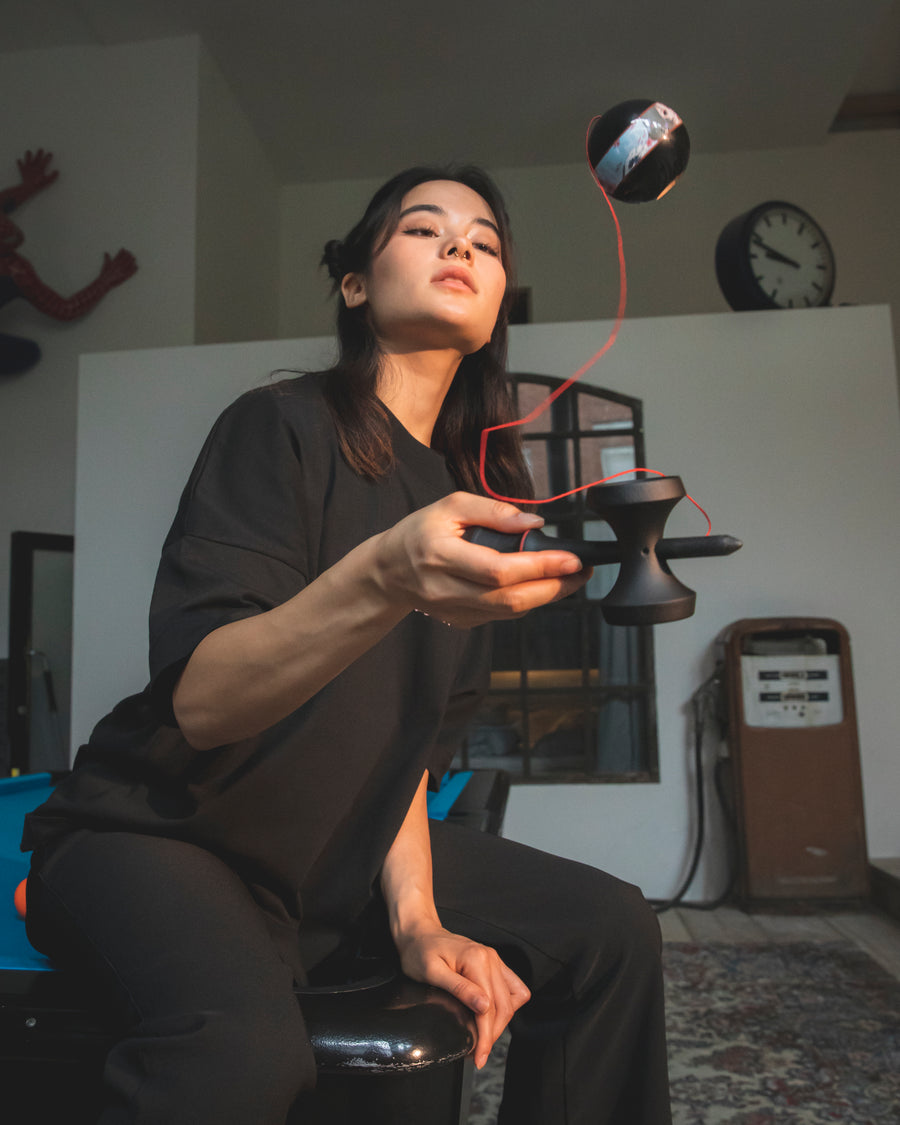
PRETTY SISTER (ARISU)
In a land shrouded by the mists of the past lies a cursed village called Ningyō Mura, the village of dolls. It was once a place full of life and joy, but an unstoppable chain of floods had forced many inhabitants to leave their homes. Only a few remained, despite the floods and danger.
In the midst of this tragic setting, a child was born - a little girl whose unusual beauty imitated that of a doll. Her hair, white as freshly fallen snow and her eyes, a deep sapphire blue. Fascinating and yet disturbing.
The villagers, overwhelmed by her extraordinary appearance, saw her as an embodiment of the misfortunes that had befallen the village.
In discomfort and fear of being afflicted by the curse, her parents made a desperate decision - they abandoned their own daughter in the hope of breaking the curse.
It was an old doll-maker of unique skill who found the little bundle and took it into her care. The doll maker lived in a small house on the edge of the village, close to the river that had so often overflowed its banks. The villagers had built dams to ward off the floods, but the water was not easily tamed.
The little girl grew up to be a curious and intelligent explorer, always fascinated by what was happening around her. However, she was also an outsider, shunned because of her doll-like beauty and the curse that was believed to be on her.
As time passed, she became quieter and more introverted. She told the puppet-maker about the melodies she heard - songs that seemed to come from the river and voices that spoke to her through the wind. Driven by these sounds, one day she set off for the river.
The river meandered through a deep gorge that filled with water during the rainy season and flooded the village. In this place, she felt a deep connection to the water. She would sit on the river bank for hours and listen to the stories the water told. One day, while absorbing the melodies of the water, she felt an inner resonance. It was as if she could understand and respond to the language of the water. She began to speak to the water, asking it to spare the village and calm its destructive rage. Without an answer, the floods receded, the river became gentler and the steady rain that caused the floods became lighter.
Freed from the fear of further flooding, a wave of relief swept through the village. The villagers, once suspicious of the girl, now found themselves plagued by guilt.
They now wished to keep Arisu with them. But Arisu, pointed to a greater task by the river, was ready to leave the village. With remorse and admiration, the villagers gave her the name Arisu - symbolising the purity and clarity of the water.















